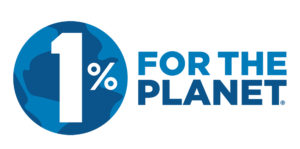Continuing our series of women leaders at WeForest Zambia we have MULAKO M. MUIMUI, Manager of our Kantanino Project and Natasha Watts, Head of Project Development. They were interviewed in November about their experiences working in conservation and leading teams.
They both encourage young women to follow the path of conservation, if they really want it: “Don’t listen to the voices that tell you it’s not for you. Stay focused on your goals and have confidence in your abilities,“ says Mulako Muimui. Natasha echos the advice: “Go for it! Look for female role models out there and strive to become one yourself!”
Read their full interviews:

When you meet Mulako M Muimui, you immediately sense quiet determination, the kind that grows from conviction rather than ambition. Today she manages WeForest’s Katanino project, but her journey into conservation began with disillusionment.
After completing her Bachelor’s degree in Forestry at Copperbelt University, she joined a company gathering environmental data for dam construction. What she saw changed her life. “There was no proper plan to protect the community or the surrounding nature,” she recalls. “It didn’t feel right. I realised I wanted to work for something that restores, not destroys.”
Mulako grew up in the Copperbelt Province, the country’s mining hub and is from a remote Lozi community, a dry, sandy region often hit by drought. “Seeing how people suffer when nature is degraded makes you want to act,” she explains. In 2019, she joined WeForest as a lead extensionist in the Luanshya Project, later moving on to become Monitoring and Evaluation Officer in the Copperbelt Project before earning her current role as Project Manager, leading a team of 14 people.
Her biggest inspiration comes from within her own organisation. “Fainess, our Country Director, has been a true mentor,” she says. “She leads with knowledge and kindness. Watching how she works has shaped the way I approach leadership.”
“I’ve seen real progress in how women are encouraged to engage in projects,” she says. “WeForest has been instrumental in showing that women can lead from the front.” However, for Mulako it is important to continue to train women in leadership, including in communities and to improve their financial literacy. That’s how we create sustainability. “
“In conservation, the field has long been dominated by men,” Mulako notes. “But if you believe in what you can do, you’ll manage and you’ll thrive.” Her message to young women aspiring to join conservation is clear: “Don’t listen to the voices that tell you it’s not for you. Stay focused on your goals and have confidence in your abilities. “
She sees encouraging signs in the sector. “Donors care about seeing more women in conservation,” she adds. “It’s not just about numbers, it’s about impact. When women are part of the solution, their influence ripples through families and communities”

“From diplomacy to the heart of Conservation”
When you meet Natasha, her calm assurance immediately draws you in. Behind her modest smile lies a career that has spanned government offices, diplomatic missions, and remote farming communities. Today, she serves as Head of Project Development at WeForest, a global role based in Zambia.
Natasha’s path began with a deep curiosity about how people and the environment coexist. With a background in Human Geography and a PhD focused on East African agricultural development, she spent time in rural Tanzania, working directly with farmers and learning Swahili along the way. “My first goal was to understand the perspectives of the people we work with,” she recalls. “You can’t work with communities if you don’t listen to them first.”
After her studies, she joined the UK Government’s Department for International Development (DFID) as one of the youngest participants in its prestigious Direct Entry Scheme for Advisers. As a Livelihoods Advisor, she managed the agricultural research portfolio, later moving back to Tanzania to develop programmes promoting agricultural development and climate change adaptation. She went on to serve at the British High Commission in Zambia, where she led the UK’s climate and environment strategy including a £25 million programme on climate-smart agriculture and supporting the government on international climate change diplomacy.
But despite her success, Natasha began to feel distant from the real impact of her work. “I wanted to be closer to the ground,” she says. “To see change not just on paper, but in people’s lives.” That desire led her to WeForest in 2022. “Looking back, I’m very happy about the change,” she reflects. “Here, I can see and feel the impact every day.”
Her experience in both policy and practice gives her a unique perspective on leadership and on the value of women’s voices in conservation. “It feels good to work in an organisation where there’s strong female leadership,” she says. “Fainess, our Country Director, is a great role model. She understands how to communicate with everyone from government officials to local communities and she mentors others to do the same.”
She also highlights the broader progress in Zambia. “There’s a real push for female leadership here across many sectors, with multiple banks, businesses, and NGOs having female CEOs.” Traditional gender roles are shifting, although it is still important to recognise cultural norms and be respectful when pushing their boundaries.
For young women considering a career in this field, her advice is clear:“Go for it! Look to the female role models out there and strive to become one yourself!”













